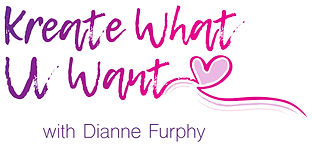Why Your Tween or Teen Melts Down At Home: Understanding the After-School Crash
- Dianne Furphy, MS

- Oct 28, 2025
- 3 min read

There’s a moment many parents know all too well.
Your tween or teen walks through the door after school. Backpack hits the floor. You say a simple “Hey, how was your day?” Suddenly you’re dealing with tears… or snappy remarks… or total shutdown.
Parents often wonder: “Why can they hold it together for everyone else… then lose it with me?”
It feels personal. It’s not.
This is the After-School Meltdown.
Their Brain Is Exhausted From Keeping It Together
A tween’s/teen's school day is a marathon of expectations:
• Paying attention
• Navigating friends and social cues
• Managing perfectionism or fear of being judged
• Staying “appropriate” even when uncomfortable
• Performing all day long
That takes a huge emotional toll. Home becomes the release valve. Where they feel safest is where the mask comes off.
It Isn’t Disrespect. It’s Dysregulation.
Tweens/teens don’t have a fully developed prefrontal cortex yet. That’s the part of the brain that helps with:
• Impulse control
• Emotional regulation
• Problem-solving
• Calm communication
When a tween/teen walks in the door, their nervous system finally says: “I can stop pretending I’m okay now.”What looks like an “attitude” is usually a stressed brain trying to come back to baseline.
The Signs Of An After-School Crash
You might notice:
• Irritability or frustration over tiny things
• Refusing to talk or engage
• Crying about seemingly small problems
• Explosive reactions to limits or requests
• Wanting space but also wanting comfort
• Complaints of headaches or stomach aches
Their emotional cup is overflowing.
How To Support Your Tween In Those First Moments
Small shifts can make a big difference. Try:
• Lower the demands for the first 20–30 minutes home
• Offer choices instead of commands (“Snack first or some quiet art?”)
• Co-regulate by breathing slower, talking softer
• Normalize feelings without pushing for explanations
• Connect physically if they want it (high-five, hug, shoulder squeeze)
This is a season where your calm energy becomes their anchor.
Creative Tools That Help Them Reset
At Kreate What U Want, I use art + mindfulness to help youth:
🎨 Externalize the big emotions & feelings
✍️ Name emotions without judgment
🌿 Build self-regulation skills
💜 See that their feelings are understandable and manageable
You can try simple prompts at home:
• Draw what your day felt like in colors and shapes.
• Create a tiny comic of a moment that was tough today.
• Make a ‘safe place’ doodle that helps your brain rest.
• Scribble the stress out, then draw what calm looks like.
• Put on a favorite calming song and draw to the music.
The goal isn’t a pretty picture. It’s release and relief.
Connection Before Correction
Your tween/teen isn’t falling apart to make your evening harder.
They’re falling apart because they finally feel safe enough to let go.
This challenging after-school window is actually a sign that you’re their secure base. You’re the person they trust with their real feelings. That’s powerful.
If you’d love personalized strategies for your tween’s/teen's emotional world, I’m here to support you.
📩 Contact me for a free 15-minute parent consult (BOOK FREE CALL HERE)
🖌 Explore my youth coaching and creative support sessions
💜 Believe in yourself and you can Kreate What U Want
You’re doing better than you think. Your presence matters more than you realize.
.jpg)



Comments